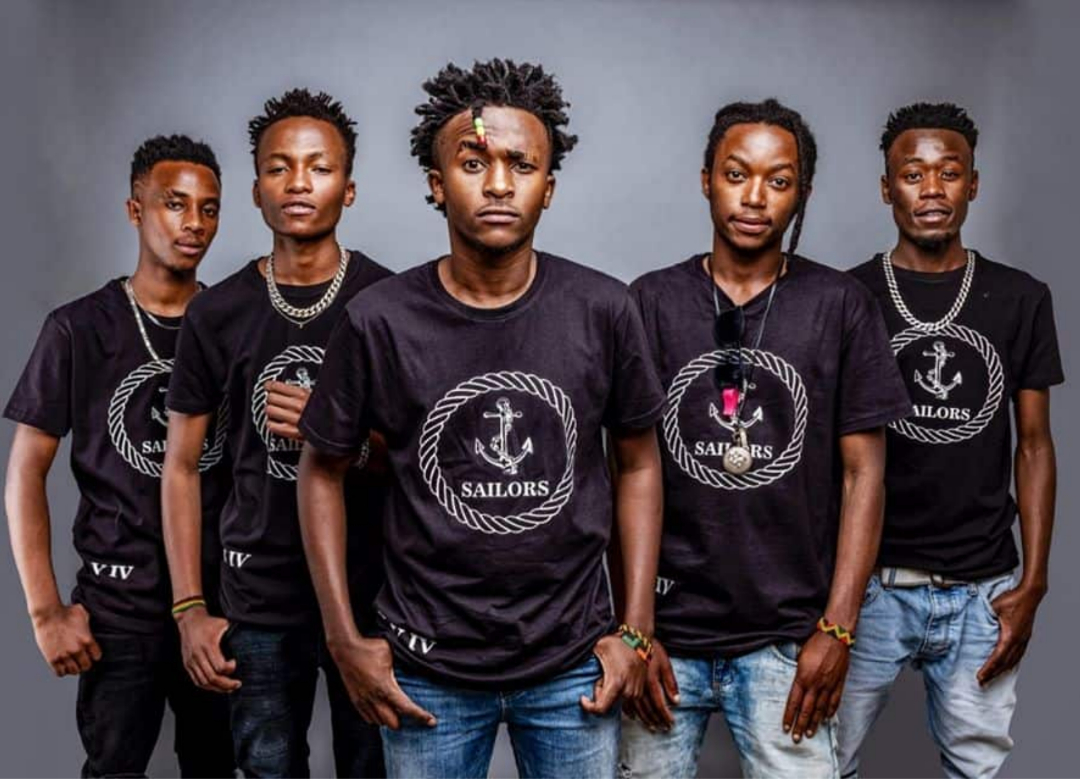It is evident that Kenyan music or even music in general has evolved over the years. Our fathers and forefathers were listening to a different type of music from what me and you are listening to right now.
This is because Kenyans’ taste in almost everything keeps changing over time.
A good, recent, and relatable example is gengetone music.
This genre has had its fair share of fame in the Kenyan market. It can be defined as a combination of ragga and Kenya’s own Genge as it boasts the vibes of these two genres. However, to really understand gengetone, you’ve got to go through the path it has gone through until today.
Gengetone rose to fame in 2019, following a rise of a hashtag, #PlayKeMusic. The hashtag was born after a lot of Kenyans took it to social media to complain about how Kenyan Deejays and media houses were playing a lot of Nigeria’s Afro-beat and Tanzania’s Bongo Flava instead of supporting Kenyan music.
During this time, a crew of young, talented musicians had taken the Kenyan music industry by storm with what is known by many as the first gengetone song. Ethic entertainment, the gengetone crew, had Kenyans singing along to their first song, Lamba Lolo. The crew carried the weight of talents like Swat, Zilla, Seska, and Rekles-the hook master.
Ethic entertainment was quickly followed by other crews who adopted the same kind of style that Ethic had brought to the scene.
Their immediate debutants were the Sailors gang, whose debut song, Wamlambez, was a bigger hit than Lamba Lolo.
Other honorable mentions during the inception of gengetone include Ochungulo Family’s Kirimino, Gwash’s Wabebe, and Wakali Wao’s Ringa.
Gengetone gathered the full attention of the country by the final months of 2019. The music had already made its way into the mainstream scene and was played on countrywide tv and radio stations.
Gengetone was at the top, probably the highest level the music genre has ever been at. The young and talented gengetone artistes made their big collabos with Kenya’s big musicians with a few of them even having international collabos.
The likes of ethic entertainment (the fathers of gengetone), went to the lengths of getting an international record label deal. It was only onwards and upwards for gengetone.
What really happened to gengetone? How did a music genre with such interesting inception end up being kind of a one-hit wonder?
When you get to start looking at when gengetone really started going downhill, you see and understand that the blame can’t really be pointed in one direction. A lot of things factored in and contributed to gengetone slowing down on its charge in the Kenyan music industry.
When gengetone came out, its fame was also majorly attributed to clubbing and partying, which is normally the way of the land every weekend in Kenya’s major towns. The first thing that came to affect gengetone was the halting of public gatherings in Kenya following the onset of the pandemic.
It was easier to vibe to gengetone music in a club when high than it was to vibe to it at home, whether you are high or not.
View this post on Instagram
This was a major setback to gengetone artistes as they were not earning money from shows. However, it is also important to mention that the music got more online hits from the same occurrence.
All in all, the money they got from their online presence was not as much as they were getting from shows. The biggest reapers from the pandemic in the Kenyan entertainment industry were deejays and live influencers.
The other thing that hugely affected the rise of gengetone was actually the gengetone artistes themselves.
The sudden decline in revenue collection from the music genre was followed by a breakout of many gengetone crews.
A lot of the solo artistes went out to look for alternative genres or other things that would earn them a better living.
When the genre started out, the likes of Sailors gang and Ethic entertainment were dominating the scene. Today, all the artistes in these two groups are doing their own stuff away from their respective music groups.
Boondocks gang as well has lost a member who later came to claim that he was forced out of the group (of course the other two members denied it).
We have also seen members of Sailors claiming that they are broke and have been deserted by everyone.
This series of claims led many to believe that gengetone artistes squandered the treasure they had gathered during their fame. The artistes have also played a big part in Gengetone’s sudden fall in the industry.
There might still be hope for gengetone as new artistes have come to the scene and are promoting the genre to their best.
We have also seen record labels like Black Market Records focusing on promoting gengetone artistes.
Perhaps the likes of the Mbuzi gang will restore the name legacy of Gengetone Music.




